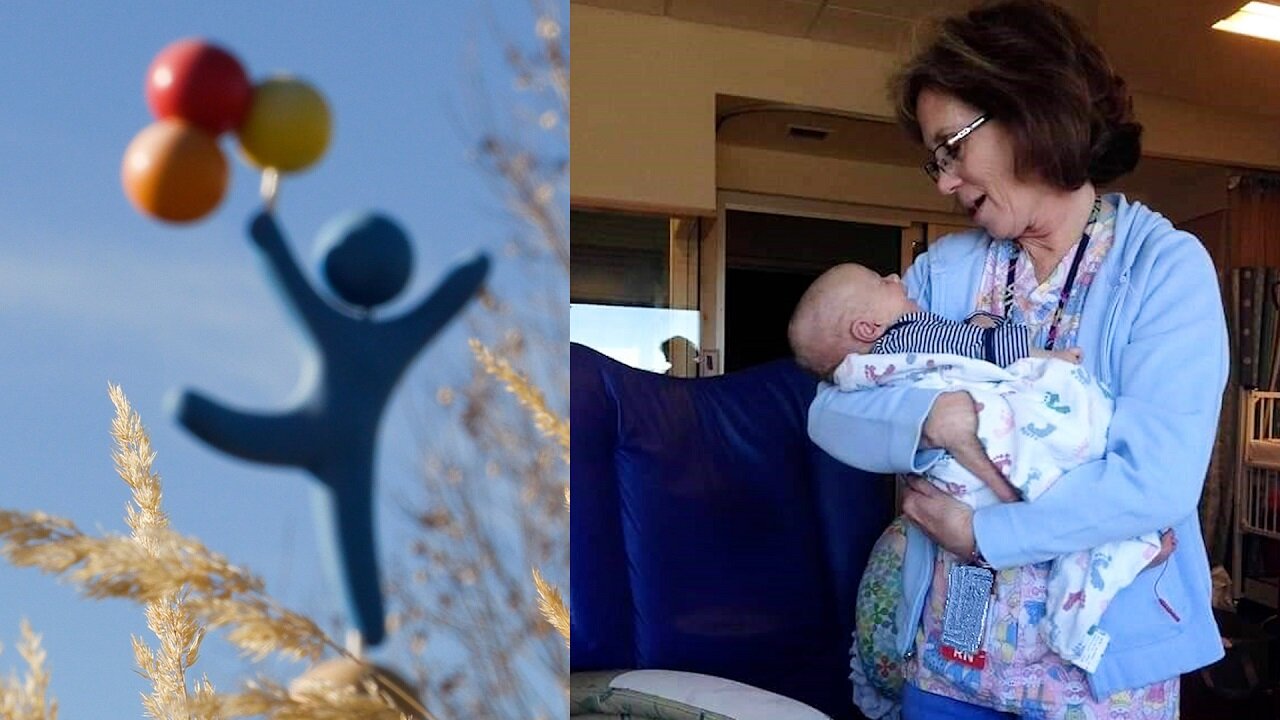Four retiring Colorado NICU nurses discuss changes after decades on the job

DENVER — The two most important things that Betsy Smith, Diana Newman, Debbie Ferguson and Lillian Postma have learned over the last several decades is that every baby is different, and every family is different. All four women have been nurses in Children’s Hospital Colorado’s neonatal intensive care unit — the NICU — for a combined 135 years.
All four women decided that 2022 would be the year they retire. They sat next to each other in the Rocky Mountain PBS studios reflecting on their careers and lives.
“It’s been a great run,” Newman said with a smile.
“Twelve hour shifts after decades of doing it just gets harder. You don’t realize how tired you are until you get home, sit down and start to fall asleep. Plus, I want to play more golf,” Ferguson laughed.
“You want to leave at the top of your game and the job is very physical and some of us walked five miles a day in our roles,” Smith said. “At Children’s Hospital Colorado, the neonatal intensive care unit is a world-renowned regional referral center. So, we service the needs of newborns in a 10 state region.”
The NICU is where newborns are placed in the hospital when they’re too sick and/or too small to go home with their families right away. And each one of these nurses has spent decades at working at the unit at Children's: Betsy Smith (32 years), Diana Newman (39), Debbie Ferguson (44), Lillian Postma (20).
“I think all people think we do is hold babies and it’s a little more complex than that,” Newman added. “As a neonatal intensive care nurse, you are at the bedside for 12 hours. Everyone else on the team looks in and comes and goes, but you are the one that’s there for a 12-hour shift, so you answer [parents'] questions and help them take care of their baby. You get to know them on a personal level.”
Smith explained that it is often the NICU nurses’ job to teach parents how to make the best out of what are often terrible situations.
“You just walked into a parent’s worst nightmare. Many of our infants are critically ill and our job is to show that parent that they can still parent, that they can still connect with this baby who has 15 [intravenous lines] and is on a ventilator. We find ways to help them bond even under those circumstances,” she said.
“Sometimes you get the tiny surgical babies that have various issues like being born with intestines outside of their bodies. We have our diaphragmatic hernia babies in the unit who are born without part of their diaphragm,” added Ferguson.

For all of these nurses, the trick over the years has been to make sure they get the technical aspects of their jobs right while also making emotional connections with the families.
“You want them to trust you. You want to make them feel like the information you’re giving them is valid and is accurate and in your child’s bests interests,” Smith explained.
The nurses told Rocky Mountain PBS that despite the stressors and the ups and downs involved in working someplace like the NICU, they have no regrets and are proud of their career choice.
“You work in such an intense environment for 12 hours, many times in life-or-death situations, it bonds us together like I don’t think any other type of career would do,” explained Smith.
As for leaving their long careers behind now, there will definitely be parts of it they miss.
“I’ll miss the people the most,” Postma said. "And I’ll miss taking care of the babies."
Dana Knowles is a multimedia journalist at Rocky Mountain PBS and can be reached at danaknowles@rmpbs.org.
Brian Willie is the content production manager at Rocky Mountain PBS. You can contact him at brianwillie@rmpbs.org.
